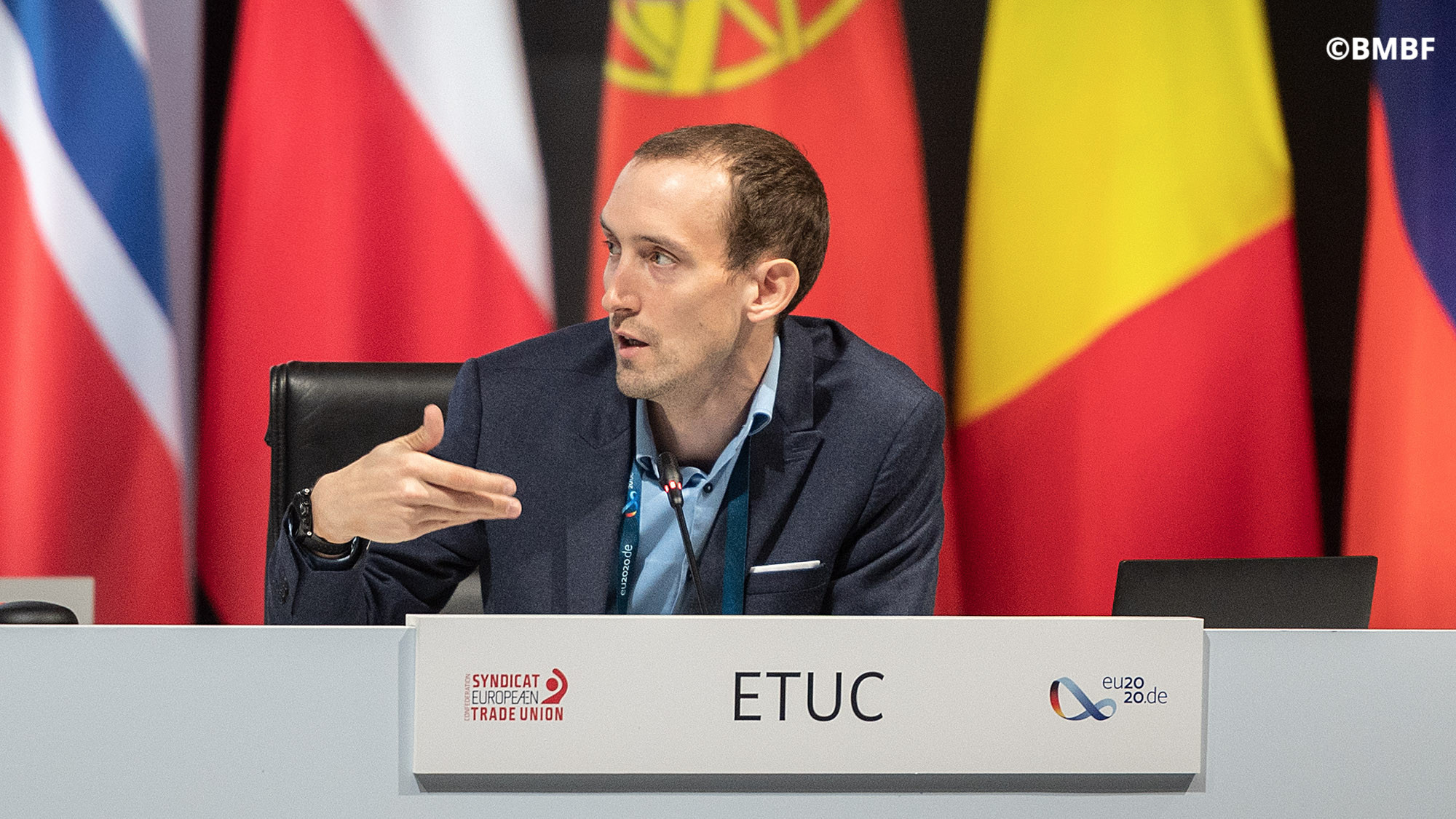
Osnabruck, 17/09/2020
To be checked against delivery
Dear all,
It seems that defining vocational education and training (VET) strategies for the future often happens in turbulent times. The COVID-19 pandemic created a new economic crisis and increased social inequalities. We should not forget that it had a damaging effect on VET students, learners, teachers and trainers, on companies and apprentices, and on the workers. The pandemic is not over, yet already millions of workers lost their jobs who will need to be reskilled and upskilled for green and digital transition in the labour market. We still do not know how many VET learners dropped out and will be part of a lost generation. We cannot afford that.
Our discussion on the draft Osnabruck Declaration to set a 5-year strategy for initial and continuous VET is timely. VET is expected to reposition itself within a future mix of a strong foundation of skills and competences and it should prepare people for existing and changing jobs, but also for future employment. At the same time initial VET is still a second choice for many students and adults and it has been suffering from insufficient public investment – and cuts - since the 2008 economic and financial crisis.
The update of EU VET strategy is of utmost importance in order to ensure the implementation of the 1st principle of the European Pillar of Social Rights which says that “Everyone has the right to quality and inclusive education, training and life-long learning”. Lifelong learning for all must become a reality in Europe. In this regard, trade unions believe that the 4 priorities in the draft Osnabruck Declaration can better meet these demands.
Trade unions ask to provide urgent solutions to reduce the number of student drop-outs from VET, to improve quality and inclusiveness of initial and continuous VET, to ensure equal access to quality apprenticeships for all young and adult learners in line with the European Framework for Quality and Effective Apprenticeships, and ensure equal access and right to employee training for all workers in all companies of all sizes and sectors.
We remind, that in addition to changes in the labour market from digitalization and decarbonization, there are around 70 million “so-called” low-qualified adults who need urgent support to access quality jobs. VET is a lever to increase competences and to support working conditions and career and wage progression. Trade unions demand that EU member states define effective strategies within their national adult learning policies to support workers and the unemployed with quality and inclusive skills provision. To achieve this, we call on the ministers to define effective skills strategies for the future together with the social partners.
Again: Quality and inclusive VET, lifelong learning and employee training must be a right, and following the signature of the Social Pillar the member states have obligations to the people to fulfill their promises to ensure this right. This is the time to do so.
